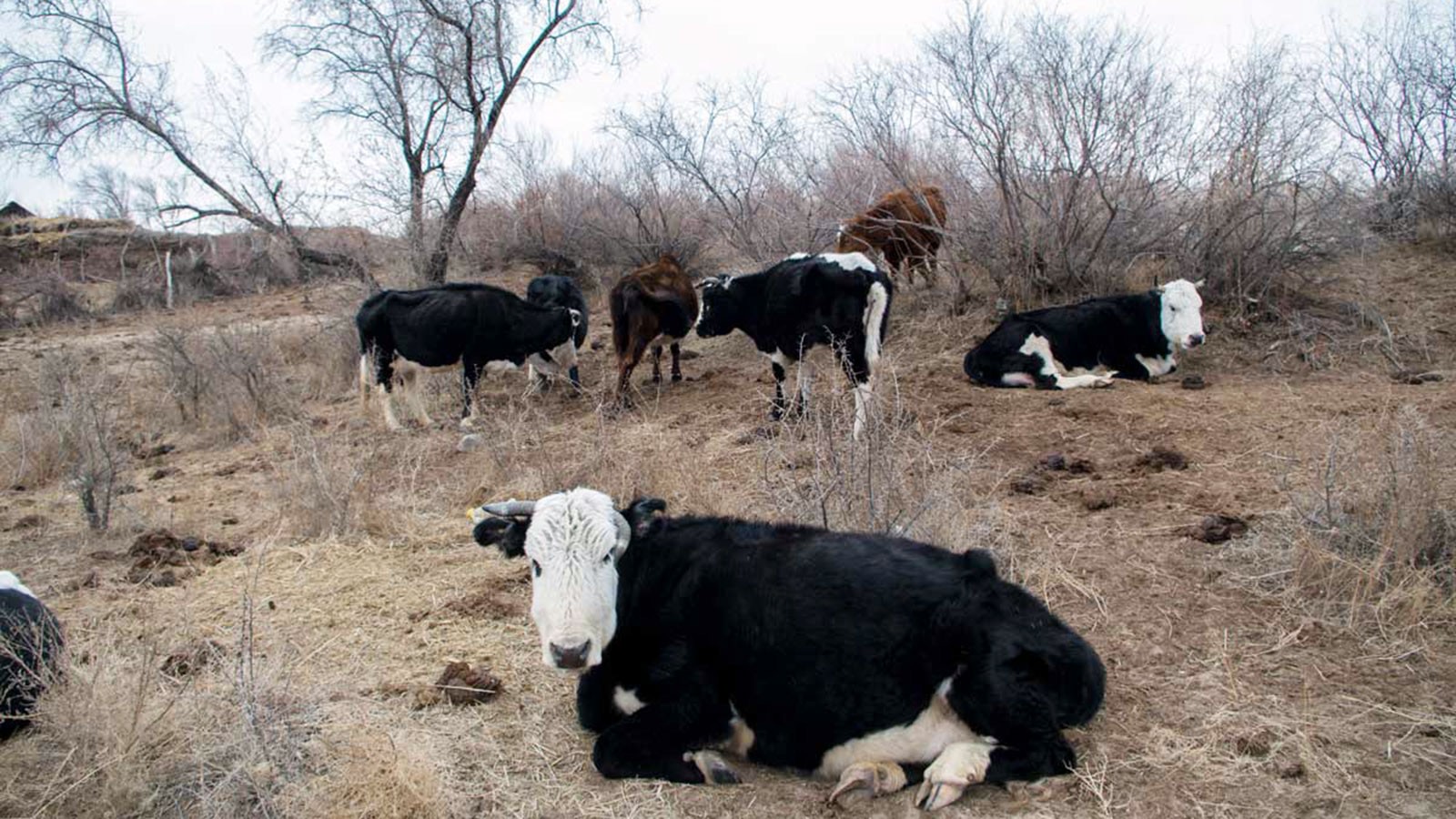NEH Award Funds Faculty Research in Kazakhstan
By Andrea DeHaan |
USU Associate Professor of History Danielle Ross is the recent recipient of a National Endowment for the Humanities stipend to conduct research in Kazakhstan.
Ross studies Tatar and Kazakh peoples during the Russian Empire but says her current project started with a dispute about cows. She and her colleagues were discussing whether it would be possible to drive a cow 600 miles.
“And she goes, ‘Well, of course you can't, 'cause cows stay in one place.’ And another replies, ‘Well, in the United States, they used to do cattle drives. So, why couldn't this happen in the steppe?’ And I uncovered the fact that not only could you drive a cow 600 miles across the Kazakh Steppe,” Ross said, “but that meant most of the labor involved in driving those cattle was ethnic Kazakh.”
The rise of Russia’s commercial meat industry at the turn of the 20th century demanded more labor, and Ross has been studying archives in Kazakhstan to track down cattle routes and try to determine the Kazan clans as well as the Tatar migrants and merchants connected to the trade.
“Most of the labor involved in driving those cattle was ethnic Kazakh — the people who were purchasing the cattle, organizing transport by rail, processing the cattle, and … turning them into various consumer goods,” Ross said. “Many of the people who owned the meat-processing facilities were ethnic Tatars, and I became interested in this project because there isn't a ton of economic history or business history on Imperial Russia.”
Historically, Kazakhs and other ethnic groups occupied their home territories before being conquered by the empire and held as second-class citizens. Ross is working to show that these non-Russian groups were central to the Russian economy.
“That’s something that doesn't exist at all at the moment,” she said. “My project is piecing together how these Kazakhs, Tatars, Bashkirs and other groups came to be tied up in this industry that eventually becomes a global one by the early 20th century.”
The NEH Summer Stipends program funds research in the humanities with a view toward publication. Recipients receive up to $6,000 for a period of two months, which allowed Ross to spend July and August 2023 working on her project in Almaty, Kazakhstan, where most imperial documents from the Kazakh Steppe are kept.
According to the NEH website, the Summer Stipends program only funds around 11% of applications. Thus, Ross was thrilled to be selected this time around, and she encourages others to “just keep applying.”
“Because I work in a field nobody's ever heard of, one thing that was probably helpful for my case was making strong connections between what I was doing and discussions of capitalism and appropriation of land in better-known colonial contexts,” Ross said.
She sees parallels between the treatment of ethnic minorities in the U.S. and the treatment of ethnic Kazakhs under the Russian Empire and argues that these correlations are not coincidental, but rather reflect a broader pattern of colonial hierarchies and racial violence.
“The United States has … the Westward movement. Russia, from the 1890s through about 1917, has an eastern and southern movement of peasants, illegally moving tens of thousands … into the Kazak Steppe and displacing the Indigenous people who had lived there forever,” Ross said. “There's something about these particular historical experiences that aren't repeated anywhere, and you start comparing Russia and the U.S., and suddenly a lot of things are very similar.”
This project has prompted Ross to look for opportunities to bring historians of American and Russian exceptionalism together for a more comparative approach. Looking at history from an international perspective, she says, may help people understand their own history in a broader context. Sometimes, though, you have to start with the cows.
WRITER
Andrea DeHaan
Communications Editor
College of Humanities and Social Sciences
435-797-2985
andrea.dehaan@usu.edu
TOPICS
Research 878stories Agriculture 225stories History 139stories Animals 90stories Global 42storiesComments and questions regarding this article may be directed to the contact person listed on this page.







